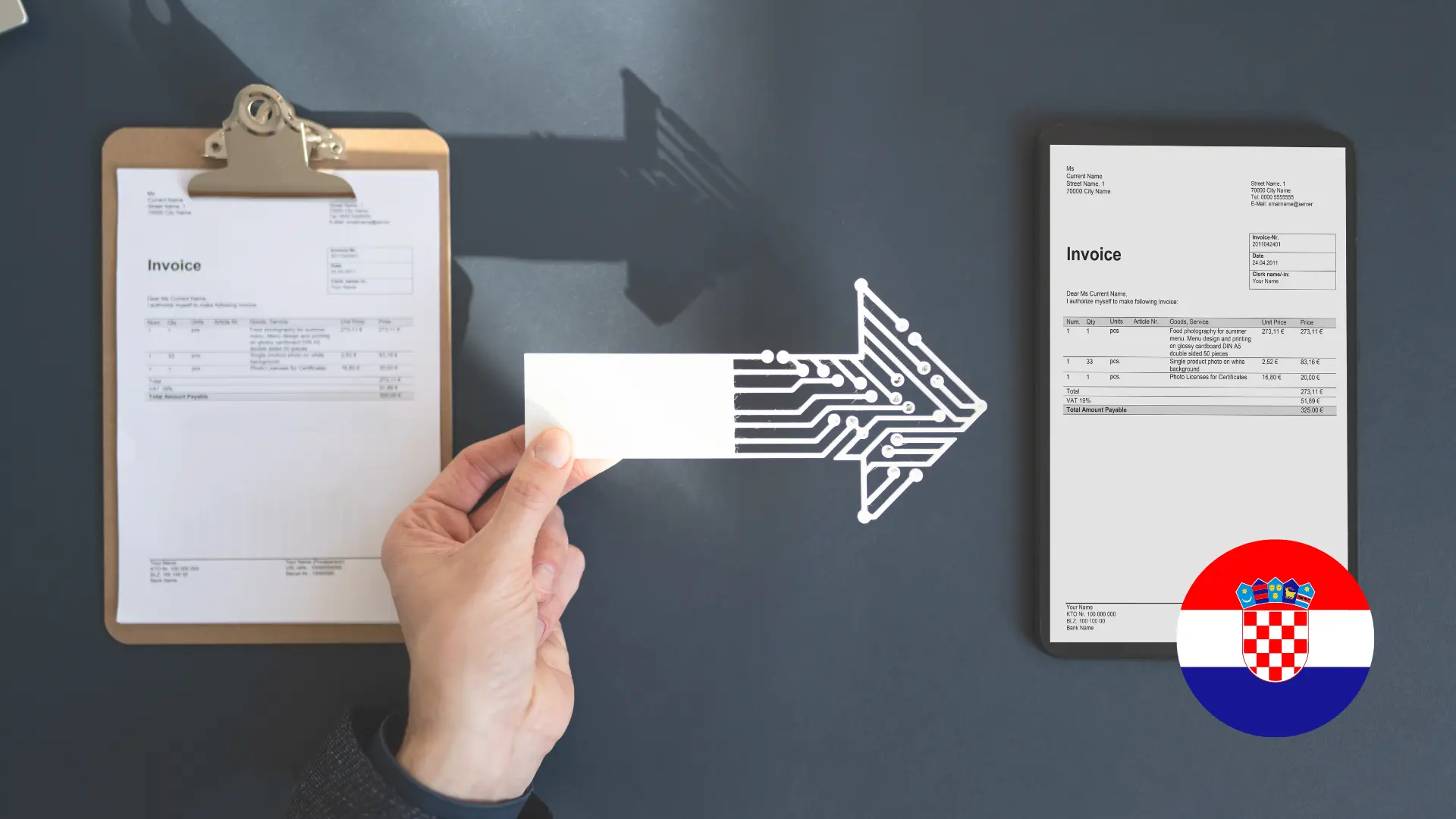
Croatia’s Fiscalization 2.0 project marks the official launch of a nationwide effort to modernize digital invoicing, archiving and accounting, with full implementation expected by early 2026. This reform introduces a major shift in how businesses issue and receive invoices and it calls for careful preparation, especially for companies operating on platforms like SAP. In this article, we at vAIsko, have summarized some of the major changes for SAP users, as well as key rollout dates and governmental requirements that might be handy for your business to consider while preparing.
Under the new system, e-invoicing will become mandatory for all VAT-registered businesses for domestic B2B transactions. However, B2C transactions will also be impacted, regardless of the payment method used. Although issuing structured e‑invoices is not required for B2C sales, which can remain traditional fiscal receipts, they still must be reported instantly to the fiscal system. For this reason, you will still need fiscal-grade digital certificates and compliant POS/invoicing systems to transmit the required data securely and in real time.
While the rules clearly cover Croatia‑established VAT businesses, the situation for foreign VAT‑registered companies faces changes too. It has been noted that the B2B mandate applies to established companies or with a fixed‑establishment in Croatia and that non‑established foreign VAT‑registered taxpayers are not in scope for issuing e‑invoices for now. If you have a permanent establishment in Croatia (e.g. branch office, warehouse, staff) - you are in scope. If not established, you need to prepare systems that can receive e‑invoices in EN‑16931-XML via AS4 or Peppol. In addition, make sure you follow the official tax authorities’ guidelines, as they keep revealing more details on the scope in the future.
The implementation timeline, starting from 1st September 2025 has enabled access to the testing environment with the new Fiscalization Act entering into force. Companies can test key functionalities such as e-invoice exchange, fiscal signing and electronic reporting, in order to adapt easily by the official launch. On 1st January 2026, the obligation of issuance and receipt of structured e-invoices for all VAT-registered companies becomes mandatory, being applicable for sole traders, self-employed entities and administration bodies as well. E-invoices must comply with the EU standard EN 16931 and will be exchanged in real time with Croatia’s Tax Administration system. On 1st January 2027, the requirement is to expand to all business entities, even if not VAT-registered.
The real-time reporting model in which invoices are sent directly to the government’s central platform requires the sender to submit invoice data in XML format to the national system. The invoice date must match the XML submission date, meaning both occur on the same calendar day. The sender is also responsible for delivering the electronic document to the recipient. The government platform will maintain a metadata directory that specifies each company’s preferred format and communication protocol for receiving electronic invoices. To enable this, recipients must provide the Tax Authority with an identifier for e-invoice delivery.
For SAP users, this means ensuring their systems are configured to generate and transmit structured XML invoices aligned with EN 16931. Companies must also perform a mapping of KPD codes (Croatian Classification of Business Activities). KPD codes are crucial because they categorize each business transaction according to standardized Croatian economic activity classifications, enabling the government to monitor, validate and reconcile VAT and other tax obligations accurately. Incorrect or missing KPD codes can lead to invoice rejections, delayed payments or even penalties. KPD codes affect reporting and analytics, as they help finance and tax authorities track business activity patterns across sectors. Ensuring that invoices carry the correct KPD codes requires careful alignment between the company’s master data, material/services classification, and transaction types in the SAP system. Early planning is strongly advised to avoid last-minute mapping errors.
SAP S/4HANA users can rely on Document and Reporting Compliance (DRC) for direct integration, while companies running older SAP releases may need to transmit invoice data via IDocs or APIs to external platforms.
As a SAP customer, start by assessing your system landscape, confirming which SAP components will be used for e-invoicing. This way, avoiding miscommunication between the Finance and IT teams guarantees everyone starts on the same page. This initial step will also make it easier to map invoice processes by identifying billing data flows and what needs to be converted. In addition, considering a SAP training programme for your team on the new changes and configurations is crucial, as your finance and compliance teams need to truly understand the new process, in order to avoid mistakes that can lead to fines. Last but not least, keep track of the legal requirements. Every new law goes through changes before it settles, especially when it concerns technical specifications and certification needs.
If you wish to start on time, reach out and we will take it over for your business.
Let's talk